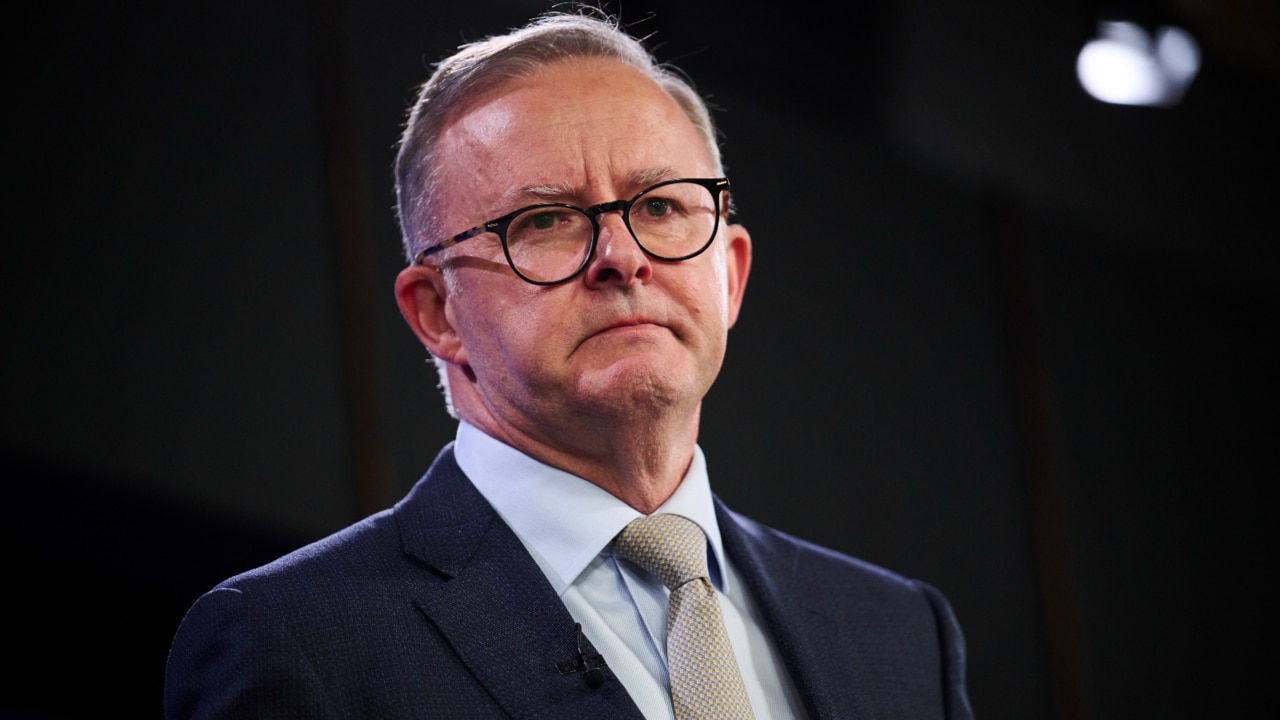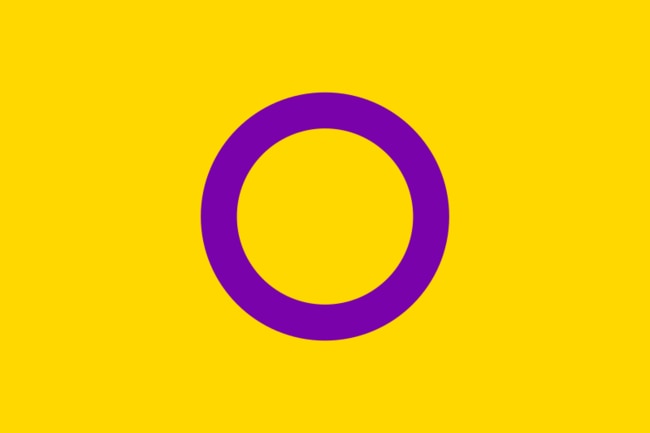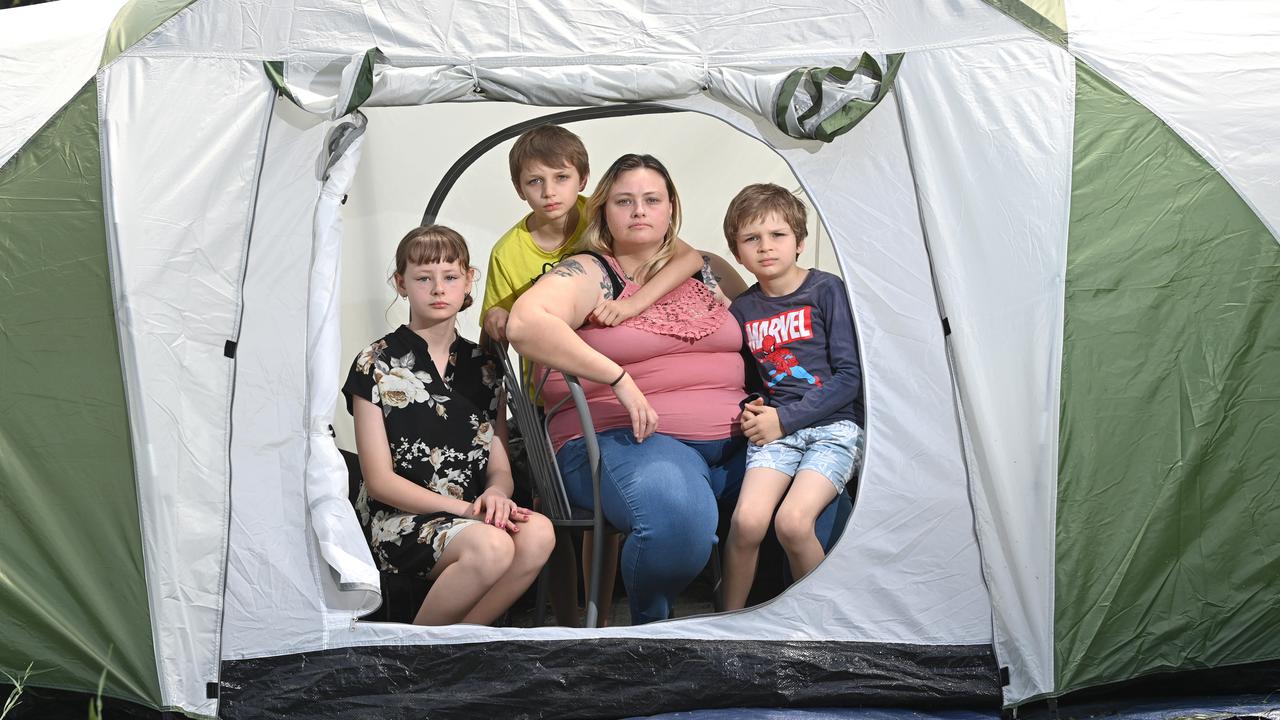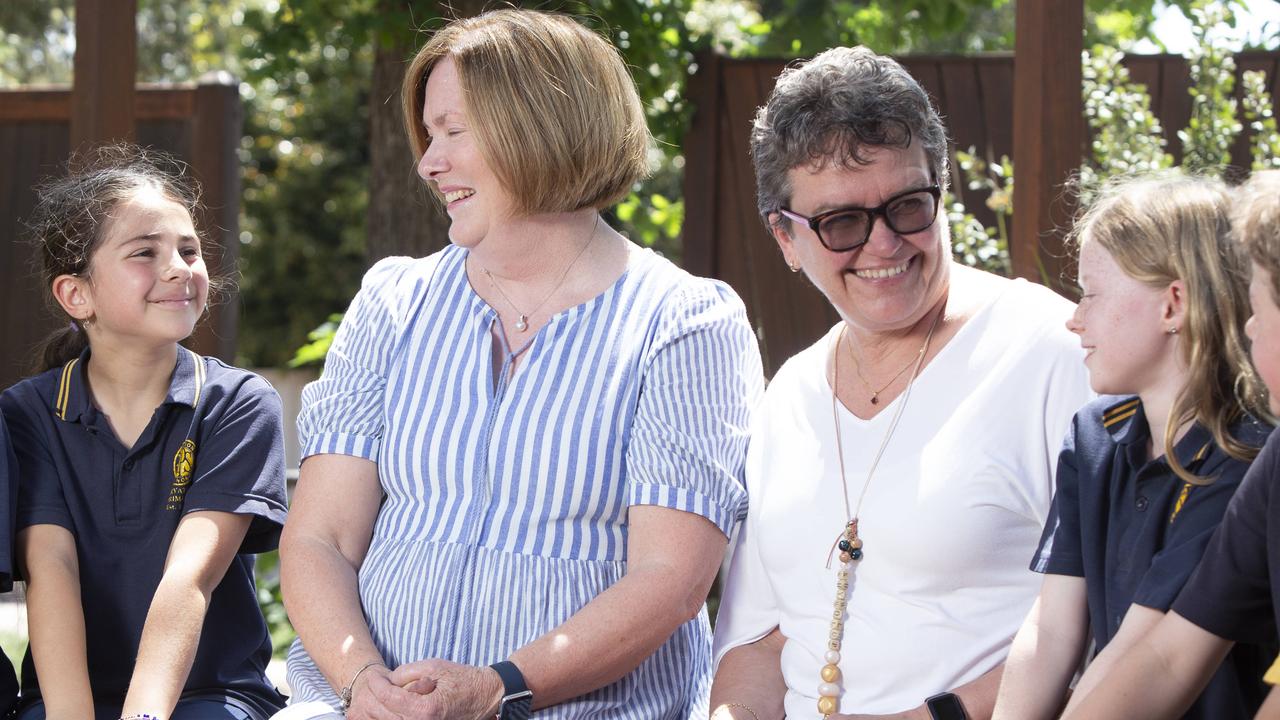ACT Government releases draft bill to curb intersex surgery
The ACT Government has drafted a bill to stop deferrable surgery on intersex children. Find out what that means.

SA News
Don't miss out on the headlines from SA News. Followed categories will be added to My News.
The ACT Government has released a draft bill which would ban deferrable surgeries on intersex children.
If passed, the bill would stop intersex children from getting surgeries to “normalise” sex characteristics.
Most surgeries given to intersex children are cosmetic in nature and intersex people have long said these surgeries can be harmful.
The bill would not block medically necessary surgeries on intersex children or easily reversible surgeries.
ACT Chief Minister Andrew Barr said the bill would “give intersex people and their families more support and expert guidance for their medical treatment choices”.
“Having a child with a variation in sex characteristics can be difficult for families to navigate,” he said.
“The legislation will ensure a wide range of expertise is used to guide best practice around irreversible medical treatments for kids with a variation in sex characteristics.
“It won’t affect urgent medical treatments – the focus is on treatments which can be deferred, and allowing children to be as involved as possible in the treatments they receive.”
We take a look at what this means.

What is intersex?
Intersex people are born with physical, hormonal or chromosomal characteristics which differ from what is typical for male and female.
These differences in sex characteristics can be the result of a plethora of conditions.
Sometimes it is apparent at birth that a child is intersex however sometimes it's only apparent during puberty or adulthood.
Intersex is a biological term, not a gender identity term.
Intersex people identify as a man, as a woman, or as a gender under the non-binary umbrella.
Some intersex people also identify as transgender if they identify as a gender other than the one they were brought up as.
Less than two per cent of the population are intersex, and while that is a small number the population of intersex people is comparable to people born with red hair.
So if you’ve met a redhead or two in your life you have definitely met your fair share of intersex people too.
What does the draft bill cover?
The Variation in Sex Characteristics (Restricted Medical Treatment) Bill 2022 aims to stop “surgical or medical procedures or treatment that permanently changes the sex characteristics of the person … or which makes changes to the person’s sex characteristics that are only reversible with a further medical procedure or treatment.”
The draft bill explicitly states that life saving or medically necessary surgeries or medical procedures that permanently alters sex characteristics of a person are exempt.
Basically the draft bill has an “if it ain’t broke don’t fix it” philosophy.
For example, let's say a child with an intersex condition is born with both testes and ovaries.
If this bill were to pass in the ACT the parents of the child cannot elect to get the child’s ovaries removed purely so the child can live as a boy.
However, if that same child developed a cancer in one of their ovaries and required the removal of the ovary to get better the bill would allow the child to get that surgery even though it would permanently change their sex characteristics.
The bill would criminalise people who undertake restricted medical treatment on an intersex child in the ACT and would also criminalise people who take an intersex child out of the ACT to access restricted medical treatment.
People caught performing restricted medical treatment on an intersex child could face a maximum penalty of two years imprisonment while those caught taking an intersex child out of the ACT to access restricted medical treatment could face up to one year in jail.

What if intersex people want surgery?
The sticking point of this issue is informed medical consent.
Children cannot give medical consent; this consent is deferred to parents who consent to medical treatment on behalf of their children.
The concern raised by intersex people is that parents are consenting to, at best arbitrary and at worse potentially harmful, surgeries on their intersex children.
Intersex people have raised concerns that these surgeries are focused on ‘normalising’ intersex people, or making intersex people conform to the gender binary, rather than their medical needs and without insight into their gender identity.
Absolutely there might be intersex individuals who want gender affirming surgeries – not dissimilar to some members of the transgender community.
But what the community is calling for is the ability of informed intersex adults to make those decisions for themselves if they choose so rather than parents making the decision for them during childhood.
Have similar laws passed elsewhere?
The ACT is the first Australian jurisdiction to put out a draft bill aiming to curb ‘normalising’ surgery on intersex children.
While some people may dismiss the ACT Legislative Assembly as little more than a local council the ACT is known for its agenda setting legislation.
So if this bill does pass on London Circuit expect similar legislation to be discussed in Macquarie St, Spring St and beyond.
What happens now?
The bill is currently in the draft stage which means members of the ACT community can review the bill and make submissions.
Canberrans and organisations can make submissions regarding the bill until July 8 2022.
Following public feedback the bill may be revised and tabled to the ACT Legislative Assembly.
More Coverage
Originally published as ACT Government releases draft bill to curb intersex surgery




